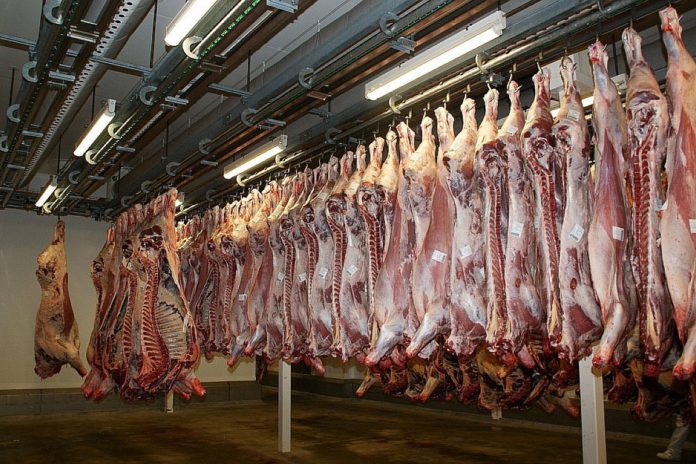Update on February 2022 beef prices
A “struggle” to match supplies with demand has forced factories to increase beef prices by 5-10c/kg this week.
IFA livestock chairman, Brendan Golden, reported that base prices for steers are ranging from €4.35/kg to €4.50/kg.
Meanwhile, heifers are varying from €4.40/kg to €4.55/kg.
Golden added that higher prices are available for larger and specialist lots.
On the other hand, young bulls – R and U grades – are making between €4.25/kg to €4.45/kg.
“Cows continue to make between €3.65/kg and €4.10/kg depending on grade, with specialist factories at the higher end,” Golden commented.
Northern demand
He described demand for beef as “strong” with live export demand for forward store and finished cattle from Northern Ireland, providing “real” competition and underpinning trade.
Golden added that the supply-demand balance in Ireland’s key export markets, the UK, and the EU, is “very much in our favour”, with reduced volumes of South American imports available.
The IFA livestock chairman said factories must take full advantage of these conditions to maximise beef price returns to farmers.
He added that factories are “actively” seeking cattle. Therefore, he advises farmers to “sell hard to maintain the upward momentum” in beef prices.
Feed and fertiliser prices
Golden also commented on increased feed and fertiliser costs on beef farms, which have “eroded” last year’s price increases.
“Despite beef prices running at 50c/kg above last year, for higher stocked beef farms, feed and fertiliser costs have risen by 65c/kg above 2021 levels, based on Teagasc estimates,” he said.
He stressed these cost increases are not sustainable. “There is no capacity on low-income beef farms to absorb this unprecedented increase in production costs. They must be picked up through the supply chain.”
“Beef farmers have to be protected from this level of volatility. It is up to factories to ensure beef prices returned to farmers fully cover these costs,” he concluded.





